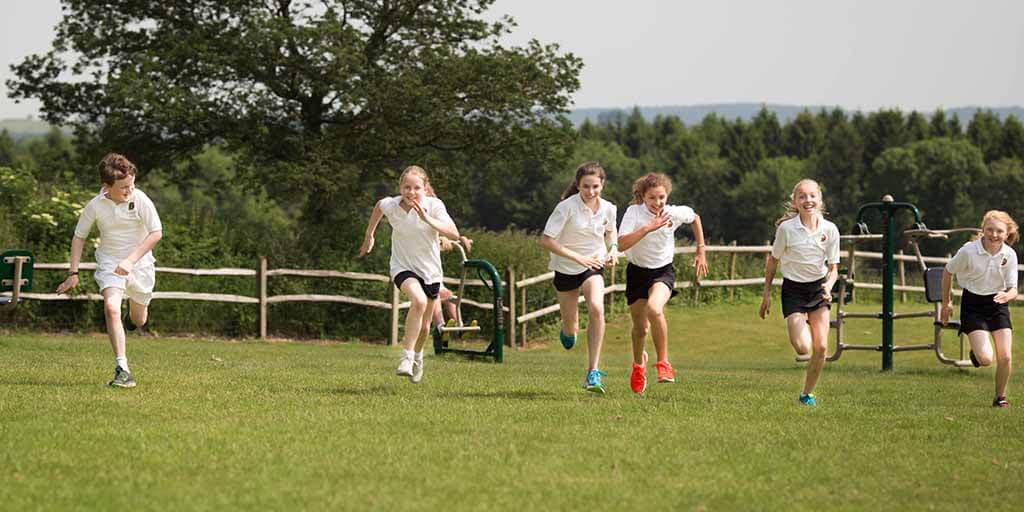
5th November 2025
Regular exercise is widely known to have a positive effect on children’s mental and physical wellbeing and emotional development. Constant physical activity also lessens the potential for chronic illnesses, and gets children into healthy habits early on. But we also need to understand how various workouts impact different health outcomes.
And schools clearly have a key part to play in ensuring young people meet World Health Organisation (WHO) guidelines of doing a minimum of an hour’s moderate-to-vigorous activity, including muscle and bone-strengthening exercises, at least three days a week.
PE has additionally been linked to enhanced cognitive performance, or how well the brain functions, including the capacity to think, learn, remember and pay attention. It encompasses elements such as problem-solving, reasoning and processing speed.
But there has previously been little research into how different types of PE lessons affected attention capacity or levels of cortisol, the hormone the adrenal glands produce and which plays a key role in the body's stress response, helping to regulate functions including blood pressure, blood sugar, metabolism and inflammation. (Consistently high cortisol levels due to stress are not good.)
A new study published in the journal Nature has looked at the impact of two different PE lesson types on cortisol levels and attention span in a school environment. It compared the impact of a curricular PE lesson and a cognitively demanding one and assessed the impact of time of day on lessons.
Curricular PE lessons have a structured plan to progress skills and cover a range of activities, focusing on the holistic development of physical, cognitive and social skills. In contrast, a cognitively demanding PE lesson incorporates challenges to improve cognitive functions including working memory and cognitive flexibility, often using games or activities with complex, unpredictable and problem-solving elements.
In all, 111 children aged 9-11 were studied. They randomly did a curricular or cognitively demanding PE session of similar intensities. Attention span and cortisol levels were assessed before and immediately after each lesson. Both PE class types improved attention and reduced cortisol levels. However, curricular PE lessons were found to have a stronger impact on attentional performance.
So it’s perhaps worth bearing this in mind when considering how to run PE at your school or youth club or team.
A separate study, also published in Nature, looked at 458 young people from junior and high schools in China, who completed a structured questionnaire which assessed physical activity, physical and mental wellbeing and academic achievement, plus self-concept. (In psychology, self-concept is an idea of the self constructed from the beliefs you have about yourself and others’ responses.)
The research found a positive link between physical activity and academic achievement, while exercising also enhanced self-concept, in turn improving physical and mental wellbeing. The researchers added:
“Physical activity contributes to academic success not only through direct effects but also through a psychological pathway involving improved self-concept and health. These findings highlight the value of integrating physical activity into educational contexts to support both psychological well-being and academic development.”
An outdoor gym offers multiple benefits for children and young people, especially in schools. You can use the pieces for myriad different activities while pupils can enjoy a workout at different times of the school day, from before classes to lunchtimes or after school.
Fresh Air Fitness is an award-winning, leading UK provider of outdoor gym equipment, which we install in a wide range of settings, including primary and secondary and special educational needs schools and colleges. Learn more about our fitness equipment and read some success stories.
We’ve previously written about the physical and mental-health benefits of PE for school pupils, and the link with academic performance, including, for example, the role of workouts in beating exam stress.
We’re with clients from start to finish, from initial site inspection through to design, installation and beyond. What’s more, all our equipment comes with a 25-year warranty, plus we supply lesson plans, how-to videos and a fitness app.
In short, outdoor gyms give pupils a wider experience of physical activity and raise the profile of exercise across your community. Get in touch today for an initial conversation.
Back to all blog posts